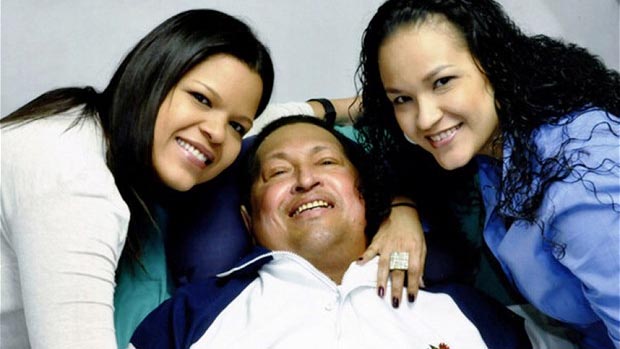Hugo Chavez's death at 58 was due to US plot, claims Maduro
Week of mourning declared for Venezuela's socialist leader as conspiracy theories fly in Caracas

A free daily email with the biggest news stories of the day – and the best features from TheWeek.com
You are now subscribed
Your newsletter sign-up was successful
THE DEATH of Venezuelan president Hugo Chavez at 58 after a long struggle with cancer was announced last night by his vice-president and favoured successor Nicolas Maduro. Chavez, who had not been seen in public this year, was an icon for 21st century Latin American socialism. But his rule divided opinion at home and abroad – hence the conspiracy theories circulating in Caracas in the wake of his death:
'It was an American plot.' Chavez's cancer was immediately blamed by Vice-President Maduro on a US plot. In a lengthy televised address, he said Chavez had been infected by "imperialist" enemies. He also revealed that Venezuela had expelled two American diplomats for spying on the military. "We have no doubt that commander Chavez was attacked with this illness", he said. The US said the accusation was "absurd".
'He actually died in Cuba.' The Daily Telegraph reports that some believe Maduro's outburst about a US plot (above) was an attempt to distract the world's media from the 'fact' that Chavez actually died in Cuba, where he had been receiving treatment for his cancer until two weeks ago before returning to Caracas.
The Week
Escape your echo chamber. Get the facts behind the news, plus analysis from multiple perspectives.

Sign up for The Week's Free Newsletters
From our morning news briefing to a weekly Good News Newsletter, get the best of The Week delivered directly to your inbox.
From our morning news briefing to a weekly Good News Newsletter, get the best of The Week delivered directly to your inbox.
A week of mourning. Chavez's body will be carried through the streets of Venezuela's capital Caracas this morning before lying in state at the military academy until his funeral on Friday. Foreign minister Elias Jose Jaua Milano has declared a week of official mourning. Professor Daniel Hellinger, a US-based Venezuela analyst, told Reuters the funeral will likely "rival Eva Peron's", referring to the death in 1952 of the first lady of Argentina.
Obama's 'olive branch'. President Barack Obama said yesterday the US was interested in developing a more "constructive relationship" with Venezuela – an announcement the Wall Street Journal interpreted as an "olive branch" to the Venezuelan people. One US government official told CNN it was "counterproductive to be at odds" with Venezuela's government. But an unnamed source in the Obama administration said the expulsion of US diplomats showed the country's leadership was "uncertain, unsure and weak".
New election. The election to find a new president will be held in 30 days' time, with Nicolas Maduro assuming the presidency until then. Opposition leader Henrique Capriles, who lost against Chavez in elections in October 2012, is expected to be chosen to stand against the vice-president.
A free daily email with the biggest news stories of the day – and the best features from TheWeek.com